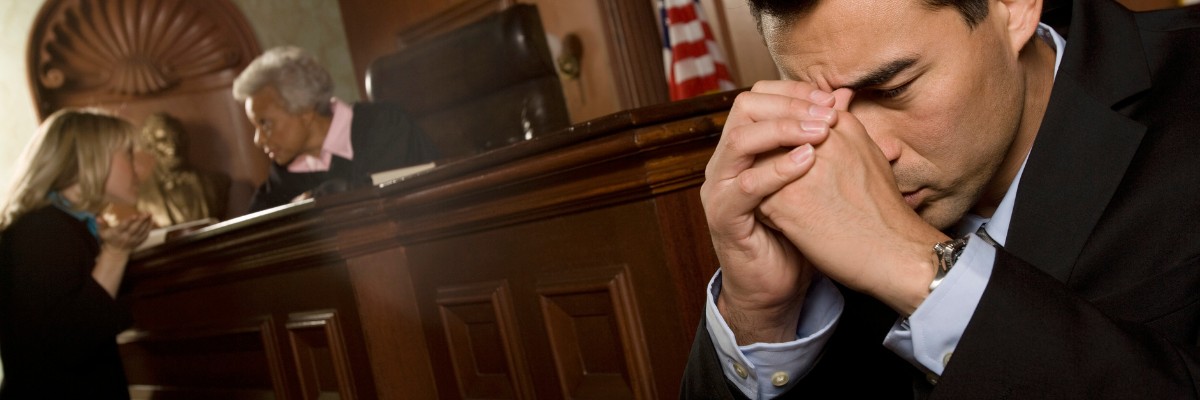This article is intended for both those individuals that have been asked to act as a Surety and those who are facing criminal charges. Agreeing to act as a Surety for someone is a serious decision and one that should not be made impulsively as a response to get someone out of jail. Before agreeing to act as a Surety, you should consider the following responsibilities and obligations you have when you agree to act. You should also consider the implications that could result if you fail to uphold your duties as a Surety and how this can impact your relationship with the person you are bailing out.
What is Bail?
Bail is an interim release from jail pending the outcome of the criminal charges. The accused person will be released on bail with a number of terms and conditions he/she is required to abide by while out on bail. These terms and conditions will be different for each person depending upon the criminal charges and the personal circumstances of the accused. Some common bail conditions include;
- To keep the peace and be of good behaviour.
- No to have any communication direct or indirect with a named person (the alleged victim).
- Not to be at any place of residence, employment or education of the victim.
- Reside at a particular address or one approved by the Surety.
- Not to consume any alcohol or drugs, unless medically prescribed by a doctor.
- Not to possess any weapons or firearms.
- To attend court as required.
As the Surety, you will be responsible for ensuring the accused person complies with these and any other conditions the Court feels is appropriate in the circumstances.
The bail ends when the criminal charges have been completely dealt with, whether that be by a guilty plea, trial or the Crown Attorney withdraws the charges. The bail will also end if you attend court and indicate you no longer wish to act as a Surety. In this last scenario the bail will be revoked and a warrant will be issued that person’s arrest.
What does it mean to be a Surety?
Simply put, by agreeing to act as a Surety for someone you are agreeing to take on a role similar to that of a jailer. You are making a promise to the court that you will make your best efforts to ensure that the person you are bailing out will completely and fully comply with all the bail conditions that person is subject.
Acting as a Surety
In order to act as a Surety you will need to attend court, and in many circumstances you may have to go on the witness stand. The reason for this is that the Court is going to want to know your relationship with the accused, that you are capable of making your best efforts to ensure the person does not breach any terms of the bail, whether or not you have a criminal record, whether you have acted as a Surety before, whether you are currently acting as a Surety for someone else, and that you will advise the court or the police if the accused is breaching his/her terms of bail.
The following criteria will disqualify you from acting as a Surety for someone;
- You are already acting as a Surety for another person.
- You are not 18 years of age.
- You are a co-accused.
- You are the victim (spouse of the accused involving a domestic assault)
- You are not a Canadian citizen or you are not a resident of the province.
In addition, counsel for the accused is not permitted to act as a Surety for his/her client.
You should also know that having a criminal record does not specifically disqualify you from acting as a Surety for another person, however it is very unlikely that the Crown Attorney or the Court would approve that you act as a Surety in circumstances where you do have a criminal record.
The Court may also require that you agree to forfeit a certain amount of money should the accused person not comply with his/her bail conditions. You will not be required to post the sum of money; rather you will only be required to demonstrate to the Court you have the ability to pay that amount. The purpose for this monetary pledge is that it will act as an incentive for you to supervise the accused and ensure he/she complies with the terms of bail. Realistically, should the accused breach his/her bail conditions, it is unlikely that the Crown Attorney will make an application to the Court to have you forfeit the money, however this possibility always exists when the accused is arrested breaching his/her bail.
In many circumstances the court will require that the person who you are acting as a Surety for live at a particular address or at an address approved by you. The are other circumstances where the court will agree to allow the person out on bail provided that he/she live with you. If the court is going to require that the person live with you, this is something you are going to have to consider carefully, because criminal matters may not be resolved for several months or longer.
When you attend court for a bail hearing, make sure you bring government photo identification and any financial documentation that demonstrates you have the capability of paying the monetary pledge.
Withdrawing from Acting as a Surety
Should you feel that you are no longer capable or willing to act as a Surety, or that you are aware that the accused is not complying with his/her terms of bail, you have a right under the Criminal Code to unilaterally withdraw from acting as a Surety. If you exercise your right to do so, the bail will be at an end and a warrant will be issued for that person’s arrest.
Making the decision to withdraw from acting as a Surety can be difficult one, particularly in circumstances where the accused is a family member. Should you withdraw from acting as a Surety, you must be prepared for the possibility that the accused person may be very upset with you because it will result in that person being arrested again. However, it would completely improper for you to continue to act as a Surety for the sole purpose of protecting the accused person from being arrested again. In addition to the possibility that you may be required to forfeit a specified amount of money, the possibility also exists that you could be charged with a criminal offence if you aid the accuse person in breaching his/her bail conditions. It is for these reasons that you should consider very carefully whether you wish to act as a Surety for someone.
Contact
Obtaining bail can be essential to properly developing a defence and preparing for trial. Certainly having a client in jail makes the lawyer’s job much more challenging. If someone you know is being held pending a bail hearing and wants legal representation, contact me immediately.
Read more about bail hearings or changing bail conditions.













